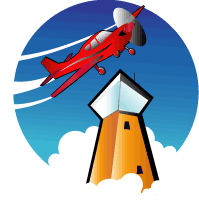In Fact, Opening A Business Can Be Compared To Learning To Fly
If you’re a pilot, I’d like to encourage you to start your own aviation business.

Last year, I wrote an article for ANN about “How Anyone Can Make At Least $150,000 Every Year In Their Own Aviation Business.” In that article I stated that there are so many opportunities in aviation that I believe anybody can get into the business and make money at it. Some of you may have taken me up on my challenge and started your own aviation business. Others may have the desire, but they’re just not sure they have the ability or the skills to succeed. If that’s you, let me encourage you otherwise.
You see, I believe that if you can fly an airplane, you can run your own aviation business. I say that because running an aviation business is similar to flying an airplane: it’s all in the numbers.
That may seem preposterous to you, after all, doesn’t running an aviation business require a college degree? Doesn’t it require many years of business experience? Doesn’t it require hundreds of thousands of dollars? Isn’t it extremely risky? The answer is no on all four counts. When you learned to fly an airplane, you started out with a flight instructor. That instructor taught you the basics of flight, and didn’t let you solo until you proved that you could operate the aircraft safely. You learned a lot of complex things over a period of time. It was like eating an elephant. You took one bite at a time until you successfully finished. You not only learned a variety of things, but you learned to merge them into a formidable activity ... the art of flying. You can proceed in the same manner with an aviation business. Instead of a flight instructor, you can simply hire a business coach. That coach will teach you and guide you through the basics of an aviation business
start-up, and like a flight instructor, continue to guide you to higher levels of success.
When you initially started flying, you started out on a grand adventure, and you constantly gained additional experience as you did more of it. Starting an aviation business works the same way. You don’t start out in business as the CEO of a Fortune 500 company, any more than you would start out in flying as an airline pilot. You start with a dream, flesh it out with basic goals, and take progressive action toward the reaching of those goals. Believe me; it’s not as hard as you may think, especially if you have a coach guiding you step-by-step along the way. I emphatically believe that if you have the ability to safely fly an airplane, you have the ability to successfully start and run your own aviation business. It takes the same set of skills you've already exhibited.
The two are very similar. For example, just like the velocity speeds that are critical to a safe and efficient use of an airplane, aviation businesses also have principles and ratios that must be continuously invoked and monitored to ensure success. You wouldn't fly without knowing and keeping your eye on the “V” speeds, so too you wouldn't run a business without keeping your eye on the business success ratios. Both fields of endeavor require you to know how to influence a foundation of essential numbers.

For example, the quick ratio test is a business success ratio. You simply divide your assets by your liabilities. If you had $100,000 in quick assets (not counting your inventory), and divided it by your current liabilities of about $25,000, your ratio would be 4:1. They say you never want anything less than 1:1, so 4:1 would be excellent.
See how simple that is ... just like looking at your ASI. The net profit margin is another example of a business success ratio. The net profit margin is simply the net profit divided by sales. For example, if your net income is $100,000 and your sales were $500,000, then your net profit margin is 20%. Now compare this figure to your industry’s standard. If it’s spot on or higher, you can relax a little. If it’s lower than the standard of your industry, then you need to do an additional analysis to find out exactly what it is that you have to do to improve it. After all, you don’t succeed in business by leaving your fair profit on the table.
Flying is the same way. You look at your indicators and adjust attitude or power to accomplish your desired flight path. If you can learn to safely maneuver a large machine in a 3-dimensional environment, you can run a business!
Flying has a number of principles that you have to follow to remain safe. For example, there are three things you can’t use in aviation: (1) The altitude above you, (2) the runway behind you, and (3) the fuel you didn’t put in. An aviation business has principles that have to be followed too. One such principle is so basic and simplistic, I almost hesitate to mention it, but here it is…“Always put more in than you take out.” Actually, that’s probably the number one success principle everywhere in life. The only time that philosophy doesn’t seem to work in life is at the dinner table. Strange thing about the way we live...we usually eat more then we can carry in good health, and then we spend more than we’ve got in the bank. If we could reverse those habits, we would all be healthy, rich, and phenomenally successful.
It’s kind of like adding add 5 - 10 knots to your Vref when landing, it removes the opportunity for a particular type of disaster. Making it a habit to always spend less than you take in, removes the fertile ground for a corporate disaster. This will allow you to develop cash reserves. Cash reserves allow you to purchase things with better timing at a better price, and it saves you interest fees.
These numbers and principles are important. If you don’t have a handle on them as you start the business (or flight), trying to eke out a cash reserve later on could be like trying to find an elusive vein of gold with nothing more than a toothpick, or getting to V2 without power, or…well, you get the point. That shouldn’t be an issue for your company if you lay the proper foundation at the start-up. A business coach can help and guide you in the formulation of your business.

When you go to a hospital, the more critical your health, the more frequently the hospital monitors your vital signs. In aviation we do the same thing. We conduct certain inspections and follow certain check-lists, such as a pre-flight inspection, and a before landing checklist. You need to do the same with your aviation business. The more critical the health of your business, the more frequently its ratios must be monitored. Knowing you’ve got a problem is only half the solution. Knowing what to do about it is the other half. You need to know what solution/s the operating figures require. A good flight instructor, or business coach, will provide you with the proper knowledge in each respective area.
I remember going through a recession in a retail store once. We resolved to always follow the principal of putting in more than we took out. To do so during these trying times, we had to constantly tighten our belts and go without some of the things we were used to having. We put our growth on hold and focused on maintaining solvency. We watched a number of our competitors extend themselves financially in order to try and maintain their status quo. When the recession was finally over, we took note of two major outcomes:
Two of our major competitors had closed shop because they were critically over extended.
We not only maintained our profit ratios, but we actually set a new annual sales record.
It was tough hanging on while everyone else was jockeying to out-position us, but when the race was over, we were the company that crossed the finish line. Why? Because running a business is like flying, it’s all in the numbers. That’s why I believe if you can do one, you’re more than capable of doing both. As a pilot, you’ve already exhibited the skill sets needed, so I encourage you to start looking for your aviation business niche today. I wish you blue skies and profitability. (Pictured: David Juwel)
 NTSB Final Report: Rutan Long-EZ
NTSB Final Report: Rutan Long-EZ ANN FAQ: Turn On Post Notifications
ANN FAQ: Turn On Post Notifications Classic Aero-TV: ICAS Perspectives - Advice for New Air Show Performers
Classic Aero-TV: ICAS Perspectives - Advice for New Air Show Performers ANN's Daily Aero-Linx (06.28.25)
ANN's Daily Aero-Linx (06.28.25) Aero-News: Quote of the Day (06.28.25)
Aero-News: Quote of the Day (06.28.25)





